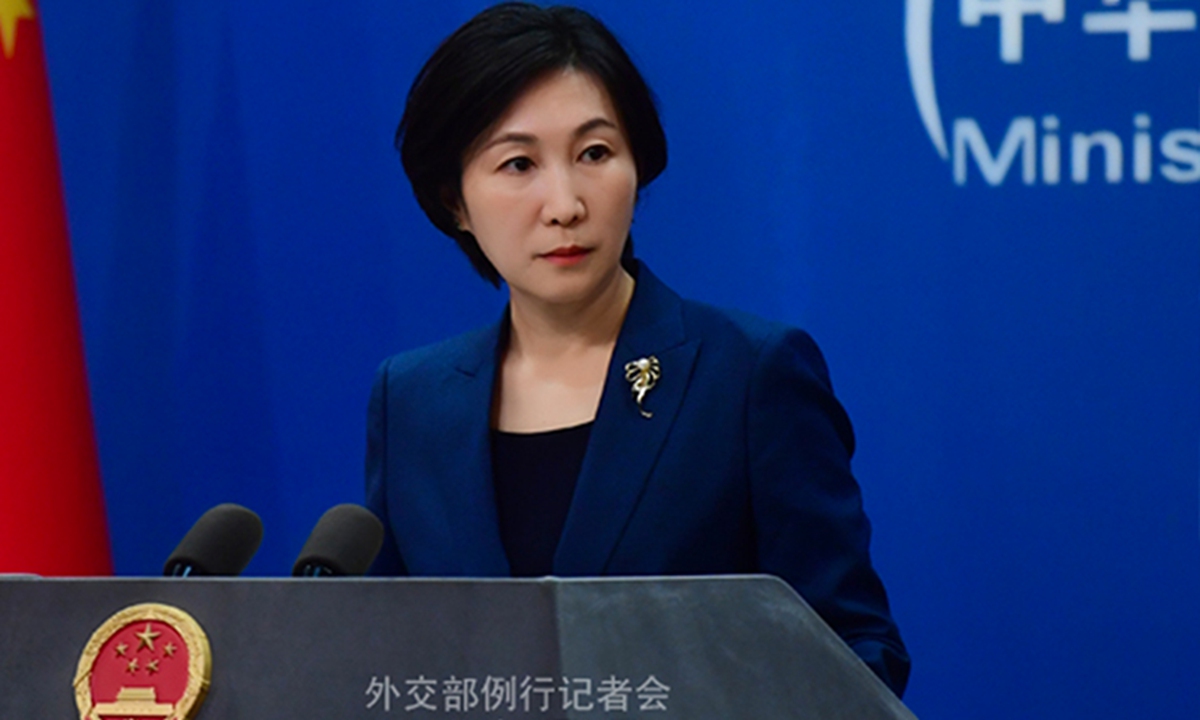China lodges serious protests to US over FY 25 NDAA; Act to bring uncertainties to bilateral ties next year: expert

Foreign Ministry Spokesperson Mao Ning Photo: Ministry of Foreign Affairs
The US determined to sign into law the "National Defense Authorization Act for Fiscal Year 2025" containing negative content on China, playing up the "China threat" narrative year after year, Chinese Foreign Ministry spokesperson Mao Ning said at a routine press conference on Tuesday, after US President Joe Biden signed into law the "National Defense Authorization Act for Fiscal Year 2025." China strongly deplores and firmly opposes this and has lodged serious protests to the US, said Mao, while urging the US not to implement these negative articles concerning China.
It [the US] has kept trumpeting for military support to Taiwan, abusing state power to go after Chinese sci-tech and economic development, limiting trade, economic and people-to-people exchanges between China and the US, undermining China's sovereignty, security and development interests and disrupting efforts of the two sides in stabilizing bilateral relations. China strongly deplores and firmly opposes this and has lodged serious protests to the US, said the spokesperson.
We urge the US to get rid of its Cold War mentality and ideological bias, view China's development and China-US relationship objectively and rationally, earnestly observe the one-China principle and the three China-US joint communiqués, stop arming Taiwan, stop politicizing and weaponizing sci-tech, economic and trade issues, stop finding pretext for increasing military expenditure and maintaining hegemony, and not to implement these negative articles concerning China, said Mao, noting that otherwise, China will take strong and resolute measures to safeguard our sovereignty, security and development interests.
According to Reuters on December 18, the act steers resources toward countering China. Among other things, the bill authorizes $300 million to help the Taiwan island acquire capabilities from "anti-ship missiles and radars to coastal and missile defense, and measures to enhance diplomatic and economic backing" for the island.
It also includes new restrictions on China and Chinese businesses, including requiring reports on China's economic outlook, biotechnology industry and synthetic opioids.
The bill also extends bans on the military purchasing Chinese products, adding bans on drone technology as well as garlic in military commissaries, Reuters reported.
Li Haidong, a professor at China Foreign Affairs University, told the Global Times on Tuesday that "the US National Defense Authorization Act for Fiscal Year 2025 will bring a negative impact and uncertainties to China-US relations next year, because it is an act aimed at meeting the demands of hawkish and anti-China forces to hype the 'China threat' rhetoric worldwide and provide pretexts for the US military industrial complex to earn more money."




